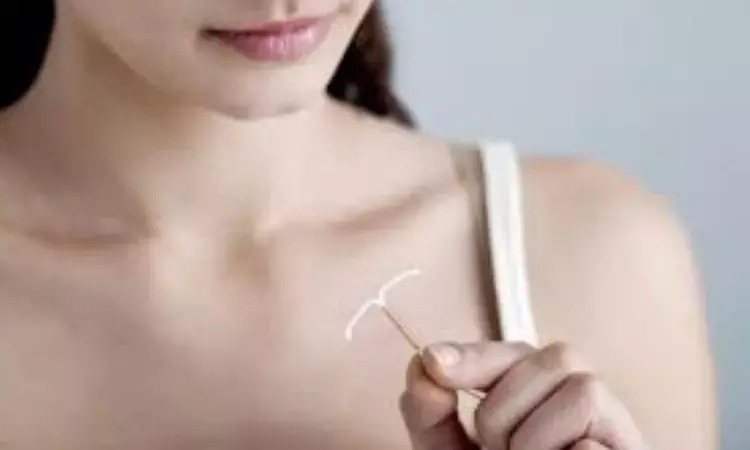- Home
- Medical news & Guidelines
- Anesthesiology
- Cardiology and CTVS
- Critical Care
- Dentistry
- Dermatology
- Diabetes and Endocrinology
- ENT
- Gastroenterology
- Medicine
- Nephrology
- Neurology
- Obstretics-Gynaecology
- Oncology
- Ophthalmology
- Orthopaedics
- Pediatrics-Neonatology
- Psychiatry
- Pulmonology
- Radiology
- Surgery
- Urology
- Laboratory Medicine
- Diet
- Nursing
- Paramedical
- Physiotherapy
- Health news
- Fact Check
- Bone Health Fact Check
- Brain Health Fact Check
- Cancer Related Fact Check
- Child Care Fact Check
- Dental and oral health fact check
- Diabetes and metabolic health fact check
- Diet and Nutrition Fact Check
- Eye and ENT Care Fact Check
- Fitness fact check
- Gut health fact check
- Heart health fact check
- Kidney health fact check
- Medical education fact check
- Men's health fact check
- Respiratory fact check
- Skin and hair care fact check
- Vaccine and Immunization fact check
- Women's health fact check
- AYUSH
- State News
- Andaman and Nicobar Islands
- Andhra Pradesh
- Arunachal Pradesh
- Assam
- Bihar
- Chandigarh
- Chattisgarh
- Dadra and Nagar Haveli
- Daman and Diu
- Delhi
- Goa
- Gujarat
- Haryana
- Himachal Pradesh
- Jammu & Kashmir
- Jharkhand
- Karnataka
- Kerala
- Ladakh
- Lakshadweep
- Madhya Pradesh
- Maharashtra
- Manipur
- Meghalaya
- Mizoram
- Nagaland
- Odisha
- Puducherry
- Punjab
- Rajasthan
- Sikkim
- Tamil Nadu
- Telangana
- Tripura
- Uttar Pradesh
- Uttrakhand
- West Bengal
- Medical Education
- Industry
Routine IUD Provision After Induced Abortion Reduce Subsequent pregnancies and abortions

A recent randomized clinical trial published in the Acta Obstetricia et Gynecologica Scandinavica unveiled promising findings regarding the routine provision of intrauterine devices (IUDs) to women undergoing induced abortions. The study included 751 adult women seeking first-trimester induced abortion, revealed that receiving an IUD at the time of abortion significantly decreased the risk of subsequent abortions over a comprehensive 5-year follow-up period.
The trial encompassed participants by randomizing them into two groups: one receiving an IUD (either levonorgestrel-releasing or copper) during abortion care and the other receiving routine care with oral contraceptives for post-abortion contraception.
Drawn from Finnish national registries, the results indicated a notable reduction in subsequent pregnancies in the intervention group compared to the control group. The hazard ratio for any new pregnancy was 0.73, underlining the effectiveness of the IUD provision.
While the positive impact was particularly evident in the first two years of follow-up, routine IUD provision did not significantly affect delivery or miscarriage rates over the entire 5-year period.
The research highlights the potential of IUDs in curbing subsequent induced abortions, offering a valuable intervention strategy for managing post-abortion fertility. Also, factors such as a history of previous pregnancies and smoking were identified as risk factors for subsequent induced abortion.
Despite the significant strides made in reducing abortion rates, the study emphasizes the need for ongoing research. The long-term effects and safety considerations of sustained IUD use in this context warrant further exploration.
This study make steps in women's reproductive health with a pioneering study demonstrating the efficacy of routine intrauterine device provision during induced abortions. The findings open avenues for improved post-abortion contraception strategies, potentially reshaping how healthcare providers approach family planning in this critical context.
Source:
Pohjoranta, E., Suhonen, S., Mentula, M., Gissler, M., & Heikinheimo, O. (2023). Pregnancy outcomes following routine early provision of intrauterine device after first‐trimester induced abortion—A secondary analysis of a randomized controlled trial with a 5‐year follow up. In Acta Obstetricia et Gynecologica Scandinavica. Wiley. https://doi.org/10.1111/aogs.14724
Neuroscience Masters graduate
Jacinthlyn Sylvia, a Neuroscience Master's graduate from Chennai has worked extensively in deciphering the neurobiology of cognition and motor control in aging. She also has spread-out exposure to Neurosurgery from her Bachelor’s. She is currently involved in active Neuro-Oncology research. She is an upcoming neuroscientist with a fiery passion for writing. Her news cover at Medical Dialogues feature recent discoveries and updates from the healthcare and biomedical research fields. She can be reached at editorial@medicaldialogues.in
Dr Kamal Kant Kohli-MBBS, DTCD- a chest specialist with more than 30 years of practice and a flair for writing clinical articles, Dr Kamal Kant Kohli joined Medical Dialogues as a Chief Editor of Medical News. Besides writing articles, as an editor, he proofreads and verifies all the medical content published on Medical Dialogues including those coming from journals, studies,medical conferences,guidelines etc. Email: drkohli@medicaldialogues.in. Contact no. 011-43720751


